
First there was Atkins diet, then keto, and a range of raw and other dietary fads. These days, gut health is all the rage. And the best way to take care of the good microorganisms in the gut, according to doctors and research, is to nourish them with healthy foods.
The word “bacteria” usually has a negative connotation. People associate it with scary infections and being sick. In reality, the body is full of “good” bacteria that is needed to function properly. Good bacteria exists everywhere in our body, including the gut, and therefore play a crucial role in digestion and overall well-being.
The trillions of microbes that live in our gut have an important role, often helping to keep us healthy, but they have also been tied to increased risk of chronic conditions such as arthritis, cancer, heart disease, diabetes, and obesity.
Several nutrients play a key role in gut health. “You need both soluble and insoluble fiber, a combination that helps to stimulate digestion,” said Amy Gorin, a registered dietician nutritionist and owner of Amy Gorin Nutrition in the New York City area.
Soluble fiber, which attracts water and slows digestion, helps to add bulk and move food through the gut. “Benefits [of eating fiber-rich foods] include lowering cholesterol, stabilizing blood sugars, and feeding healthy gut bacteria,” according to Kayla Fitzgerald, a registered dietitian and nutritionist at Nutrition Rites, a nutrition counseling center.
Insoluble fibers, which can’t be completely digested, pass through our GI [gastrointestinal] tract mostly intact, Fitzgerald noted. Benefits include preventing constipation and reducing the risk of developing diverticular disease and colon cancer.
“You also want to look to foods that offer probiotics, beneficial bacteria that can help your health,” Gorin said. Probiotics are living microorganisms and may help everything from your gut health to your immune system, she noted.
Prebiotics, which basically serve as food for probiotics, are also important for gut health, Fitzgerald said. A fair amount of foods contain both microorganisms. But those who consider adding them to their diet as supplements should talk to their doctor to ensure these supplements would not interact with any medications and that the strain considered is the right one in case of a specific medical condition, she noted.
To compile a list of some of the best foods for gut health, 24/7 Wall St. consulted registered dietitians and nutritionists and reviewed several studies on what benefits certain foods may have on the gut microbiota.
Click here to read about the best foods for your gut health.
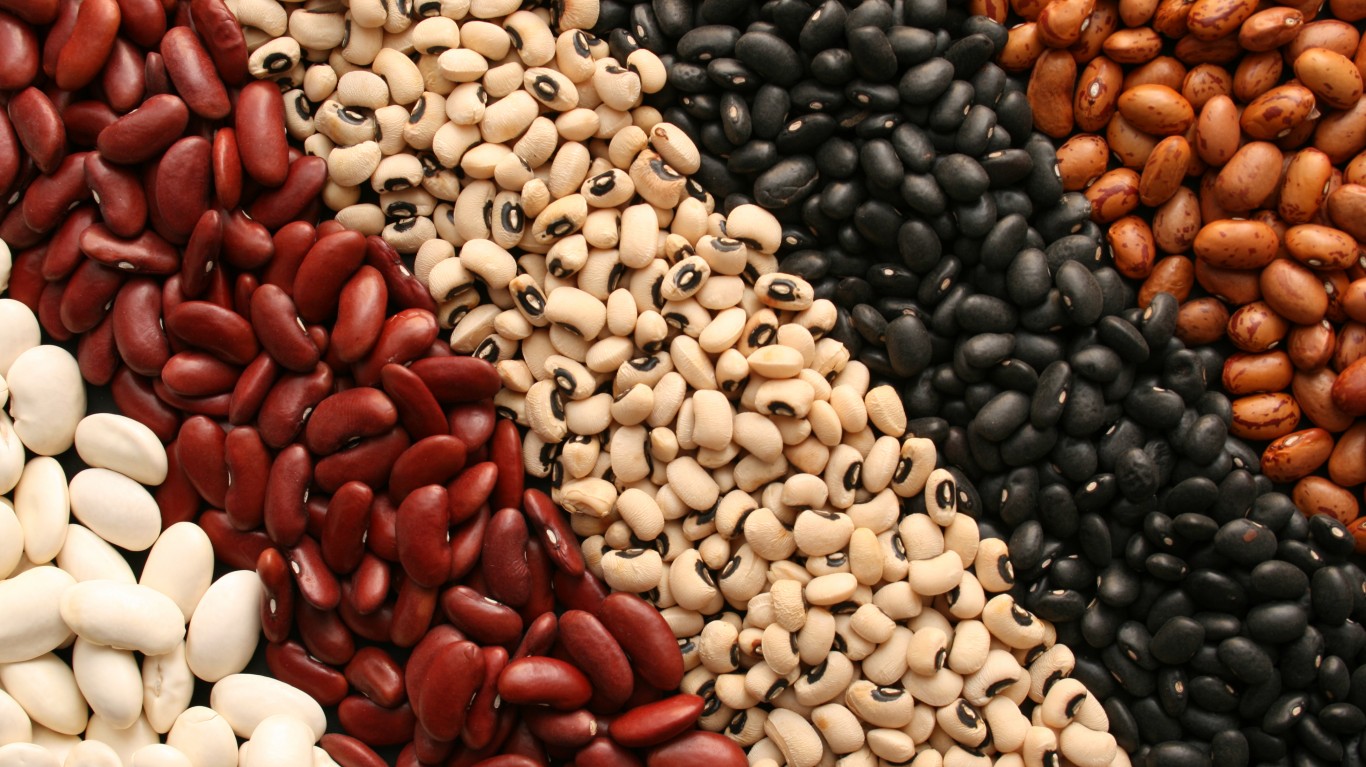
Beans
Legumes in general have been shown to benefit gut health due to protein and carbs they contain. Beans, in particular, offer a combination of soluble and insoluble fiber, according to Gorin. “Fiber is great for stimulating digestion, as well as feeding gut bacteria.” White and kidney beans, for example, are often used in a variety of dishes such as salads, stews, soups, and grain bowls.
[in-text-ad]
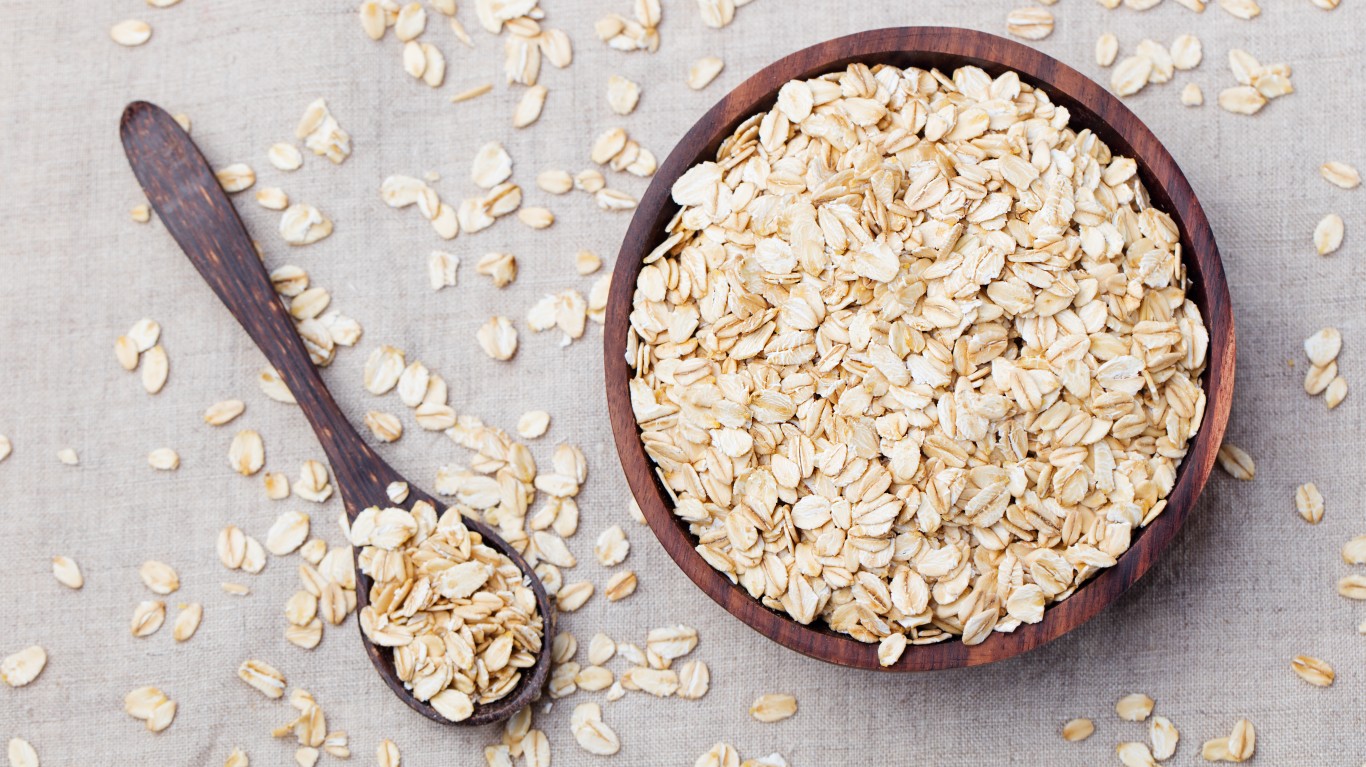
Oatmeal
Whole grains such as oatmeal supply fiber — both soluble and insoluble fiber, according to Gorin. A high-fiber diet will help you bulk up the weight and size of your stool, which can make it easier to pass, she added.
Those considering adding oatmeal to their diet should consider doing it gradually so as to slowly increase the fiber intake to decrease the risk of bloating and gas, according to Gorin. “And make sure to drink plenty of water.”
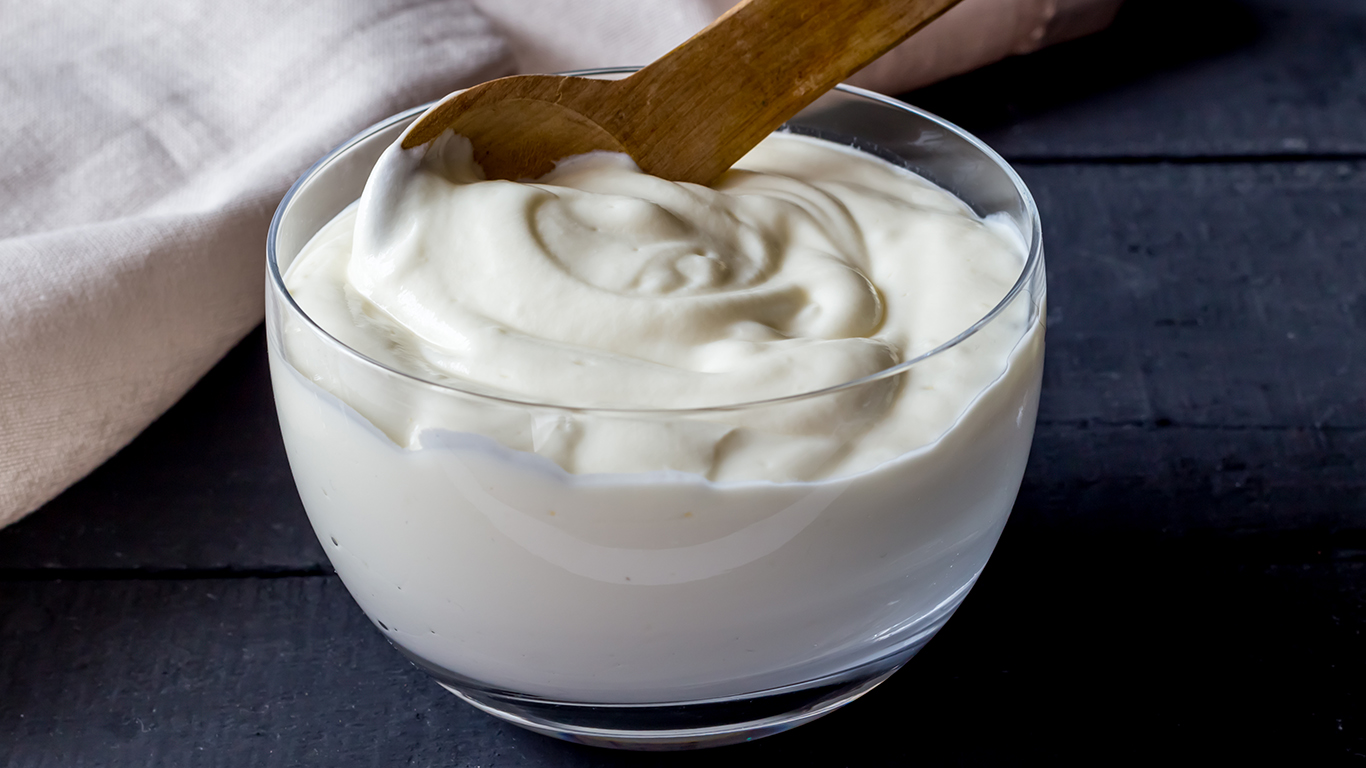
Fermented dairy
“Fermented foods, such as Greek yogurt and kefir, can be helpful for gut health,” Gorin said. She suggests adding a probiotic-containing Greek yogurt to any salad dressing with crudités, or blend kefir into a berry smoothie.
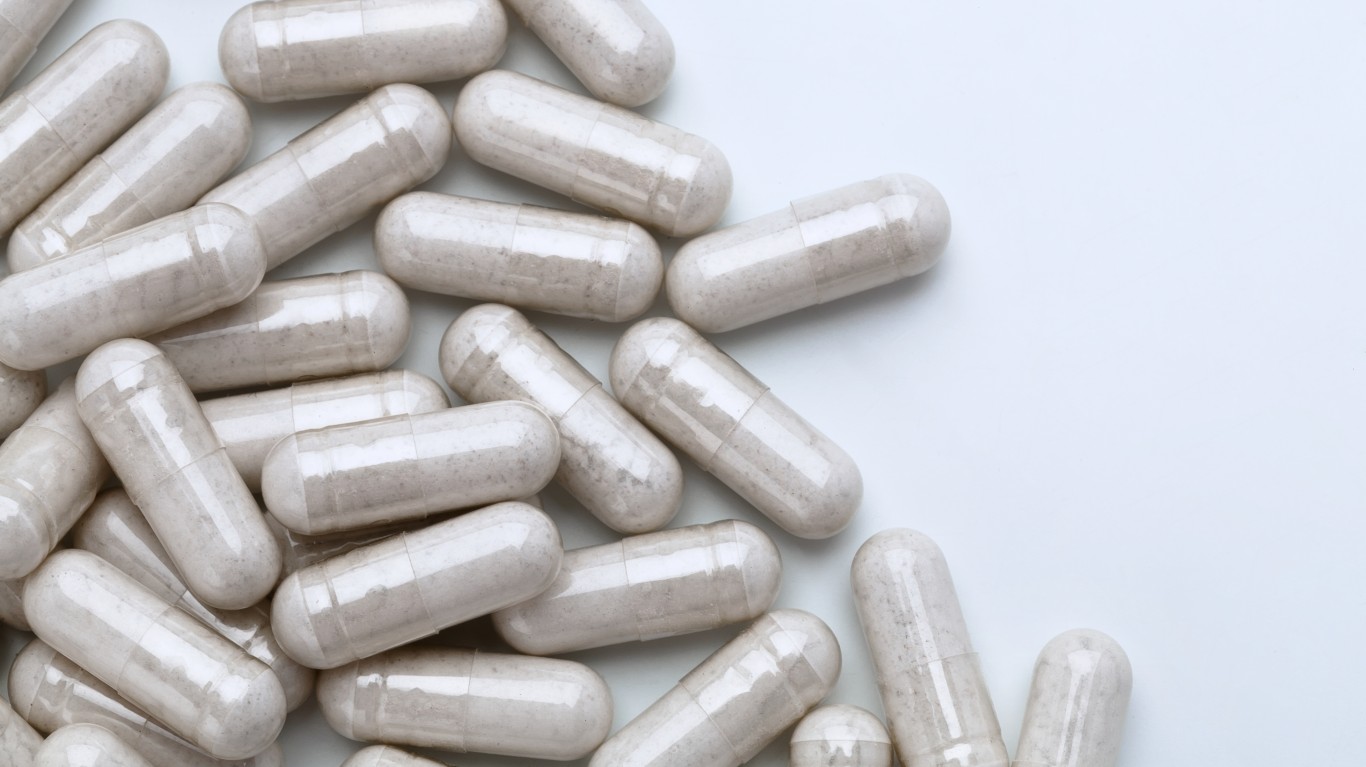
Probiotics
When it comes to gut health and probiotics, you want to look for a few specific things when purchasing supplements. “One is that you want to make sure the probiotic you’re buying has some research behind it to show a benefit in the area — in this case, gut health — that you’re looking for,” Gorin said. Some strains have been shown to have benefits for people with irritable bowel syndrome, according to Gorin. Other strains help keep gut health strong while a person is taking antibiotics. “Also look to see that the probiotic lists the genus, species, and strain.”
[in-text-ad-2]
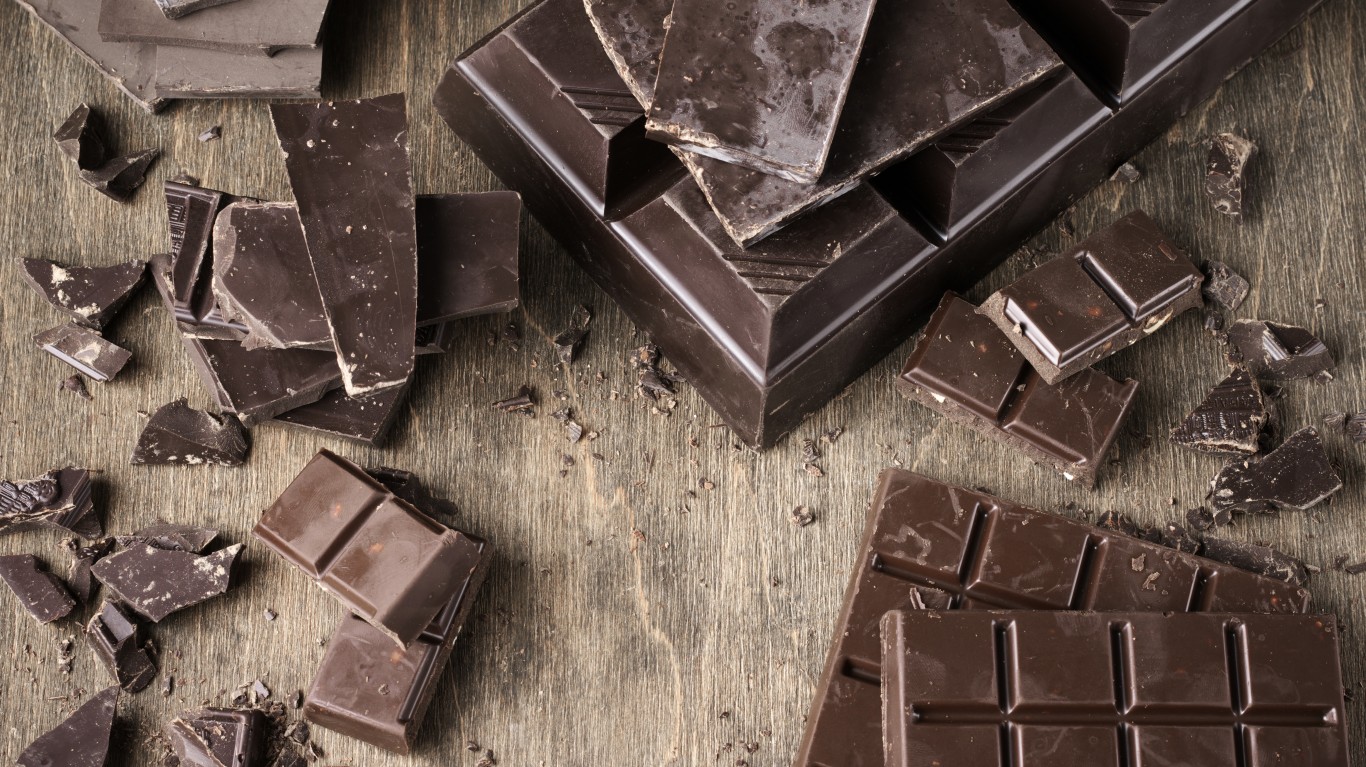
Dark chocolate
Dark chocolate helps gut health not because of something in the sweet treat, but because of how good bacteria living in our gut interact with antioxidants and fiber in cocoa. It contains polyphenols, which are compounds with antioxidant properties, that help the production of healthy microbes in the colon.
“However, the amount of cocoa tested to produce these results was a rather large amount, which means the harmful effects of all the sugar and fats would likely outweigh any real gut health benefits,” Fitzgerald said. It can still be enjoyed in moderation. “Look for higher percentages of cocoa as that means it contains less sugar.”
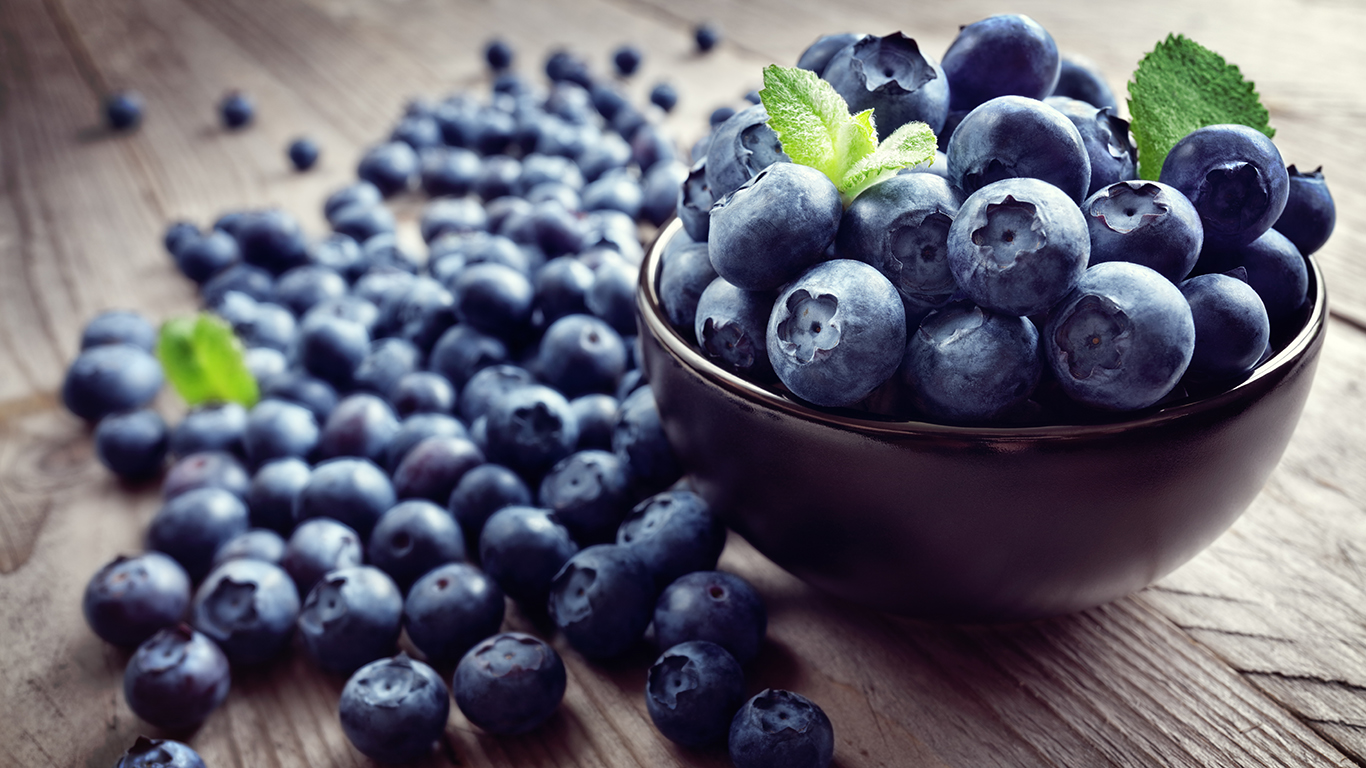
Blueberries
Blueberries are an antioxidant powerhouse. The small fruit enhances the gut microprofile, according to the Plants for Human Health Institute, a North Carolina State University research and education organization. Its research has shown that blueberries can serve as anti-inflammatory agents in the gut by stimulating the production of healthy gut bacteria.
[in-text-ad]
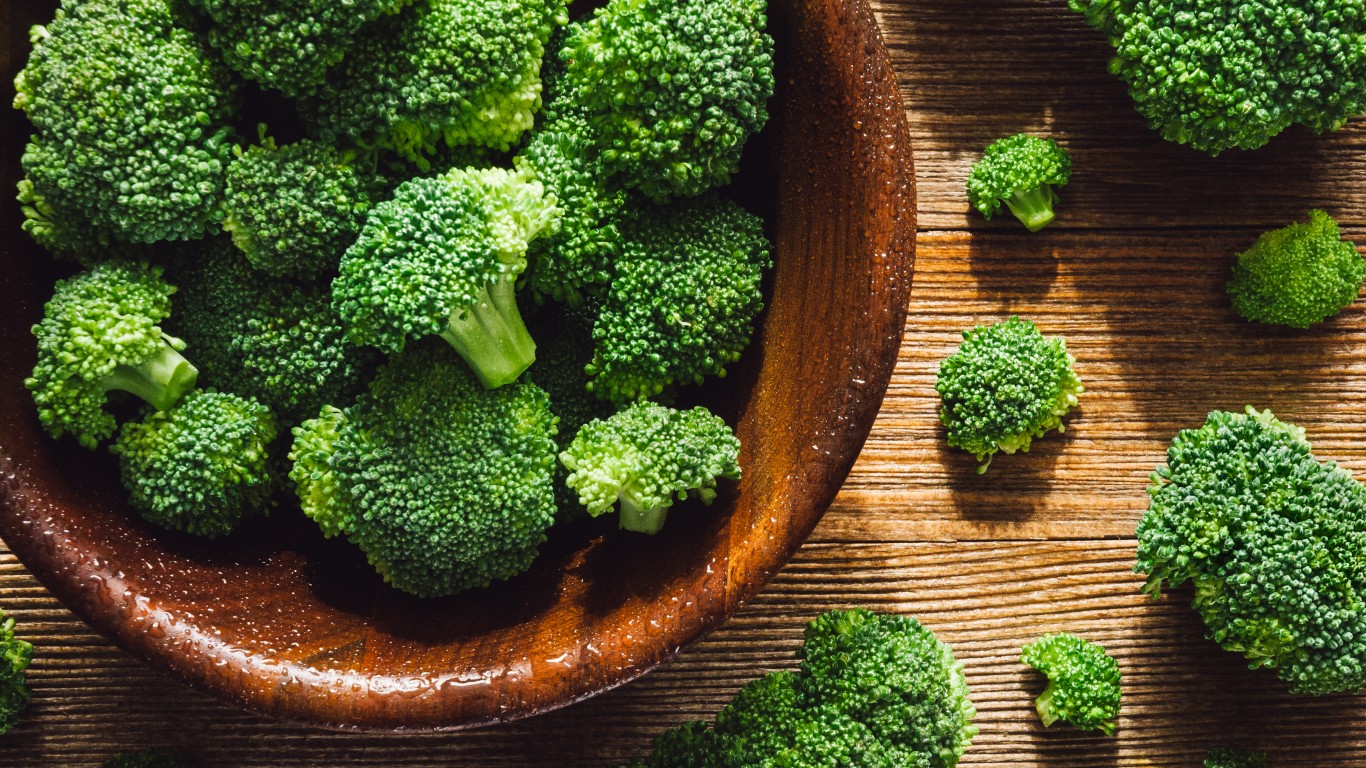
Broccoli
This may not be enough to win over broccoli haters, but there is evidence, according to Penn State University researchers, that cruciferous vegetables, like broccoli, contain an organic compound called indole glucosinolates that breaks down in the stomach. They help the gut flora maintain a healthy balance between good and bad bacteria. Broccoli also helps reduce inflammation in the colon.
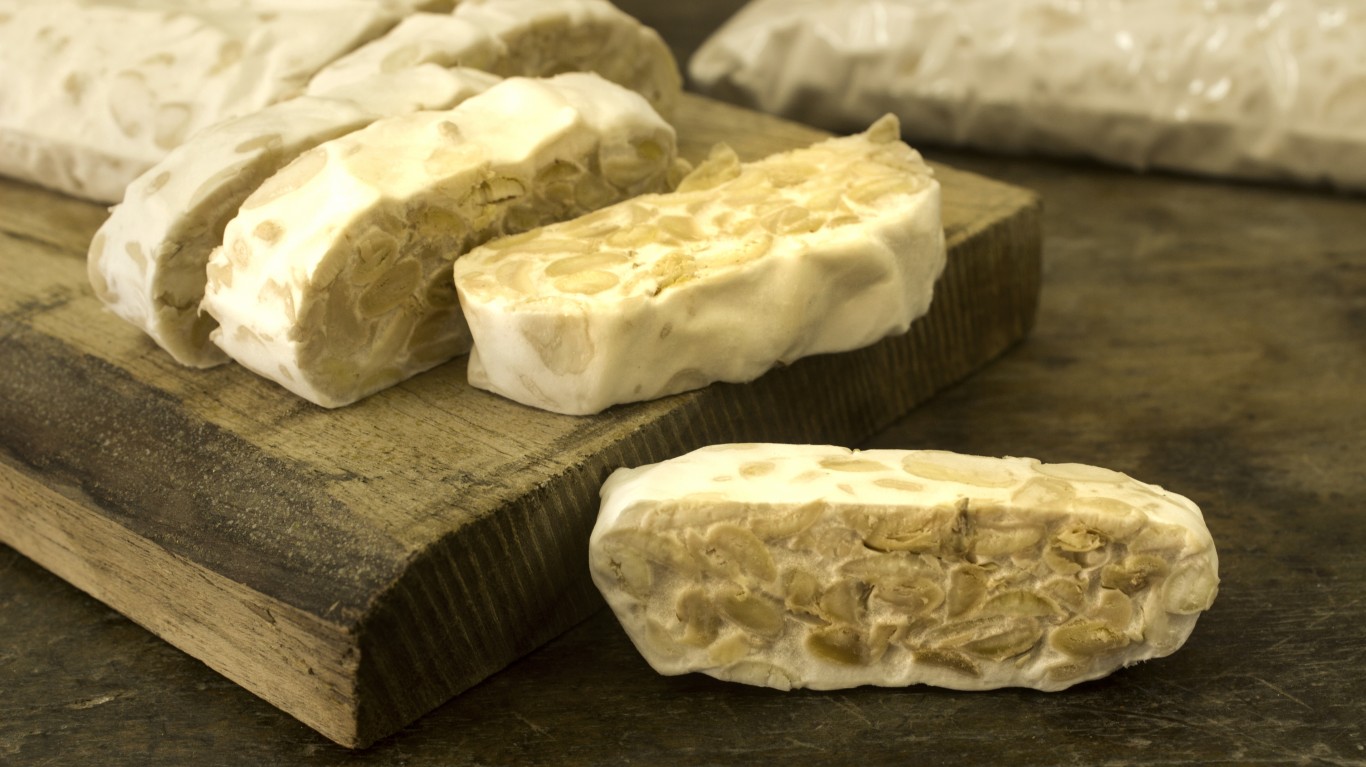
Tempeh
Fermented foods are a good source of probiotics, which some research suggests may improve gut health. Tempeh, a meat substitute, is made from fermented soybeans. One study has found that soy tempeh may stimulate the growth of Bifidobacteria, which have been added to many foods due to their healthy properties. Tempeh may also improve gut health by boosting nutrient absorption.
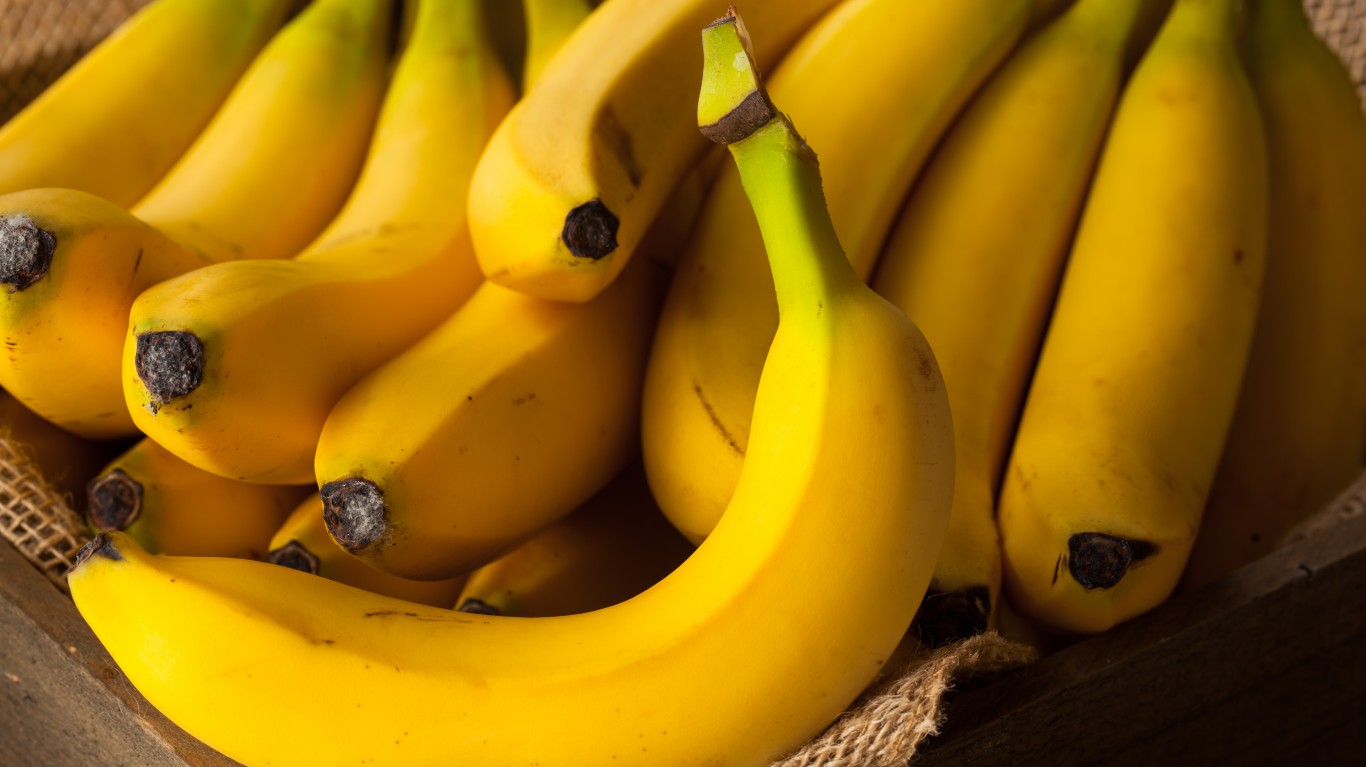
Bananas
Bananas are one of the best sources of prebiotics, which can be thought of as the food for probiotics, according to Fitzgerald. Bananas contain resistant starch, which ferments in the large intestine and basically becomes food for the good bacteria in the gut, improving gut health.
[in-text-ad-2]
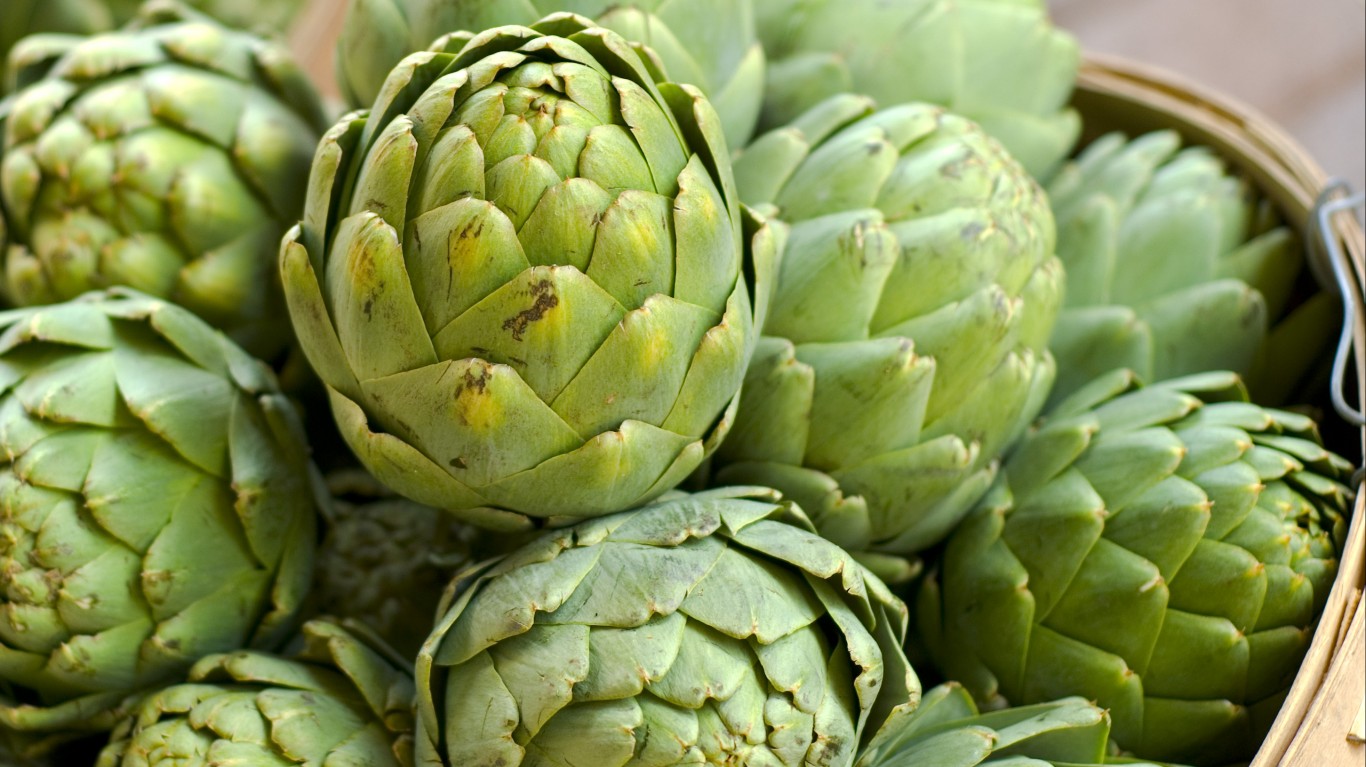
Artichokes
Artichokes are another great source for prebiotics. They are rich in inulin, a prebiotic that breaks down in the colon, stimulating the production of healthy bacteria and preventing the growth of bad bacteria. It also helps with water and electrolyte absorption, which are essential for overall good health.
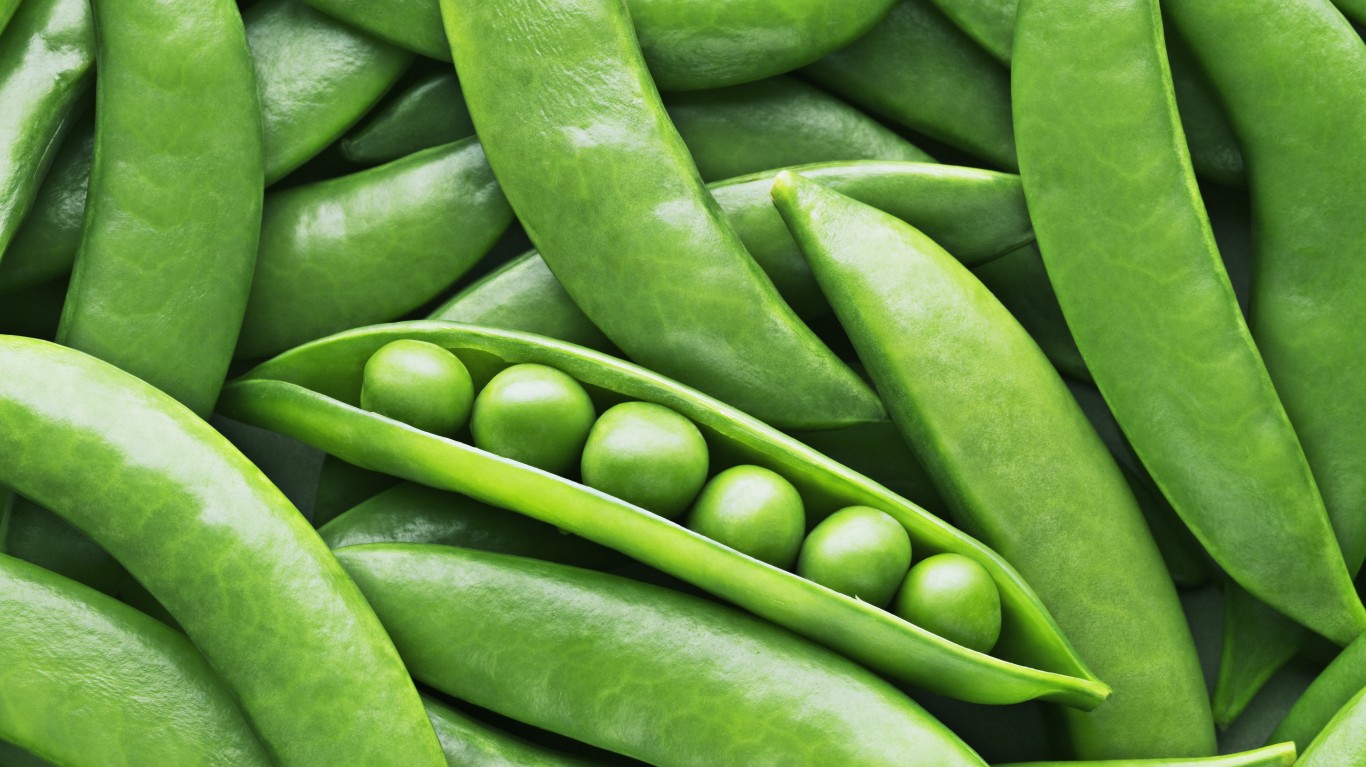
Green peas
Peas are a good source of soluble fiber, Fitzgerald said. Soluble fibers “help to add bulk and move food through the gut.” Other benefits of soluble fiber include lowering cholesterol, stabilizing blood sugars, and feeding healthy gut bacteria, she noted. Fiber stimulates the growth of beneficial gut bacteria. There is evidence that people on fiber-rich diets have more indolepropionic acid, an anti-inflammatory chemical made by gut bacteria, which may help prevent diabetes, according to a recent Finnish study.
[in-text-ad]
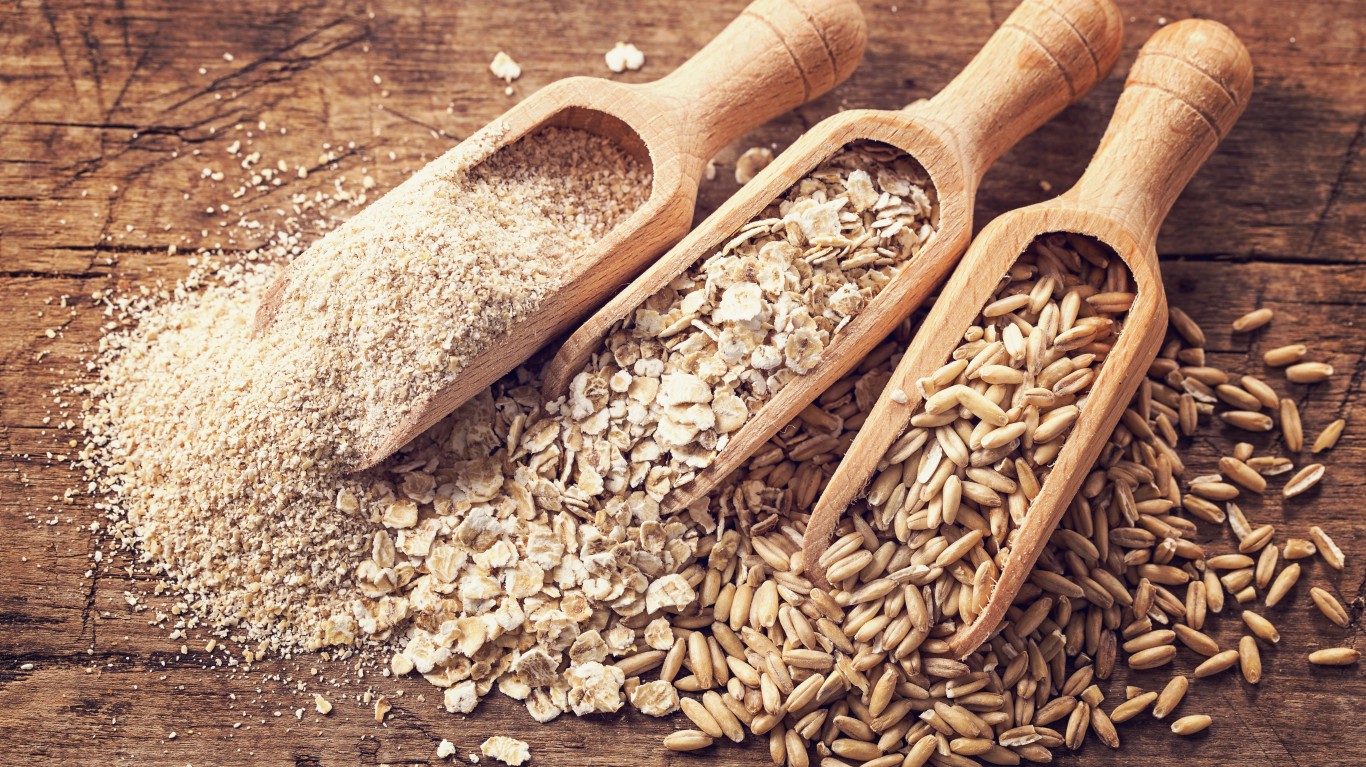
Whole grains
In general, one of the best sources of fiber, other than fruits and vegetables, are whole grains, Fitzgerald noted. Whole grains contain indigestible fiber, which is fermented by the gut microbiota, producing fatty acids that help maintain proper gut health. Whole grains help reduce the amount of Enterobacteriaceae, bacteria found in the intestinal flora that can trigger inflammation, according to a 2017 study published in the American Journal of Clinical Nutrition.

Raspberries
A preliminary study by the Institute for Food Safety and Health from the Illinois Institute of Technology has shown that red raspberries may help improve the ratio of Firmicutes and Bacteroidetes, bacteria generally dominant in the gut. The ratio usually decreases with age. Raspberries are also very high in fiber, which is good for gut bacteria and food digestion.
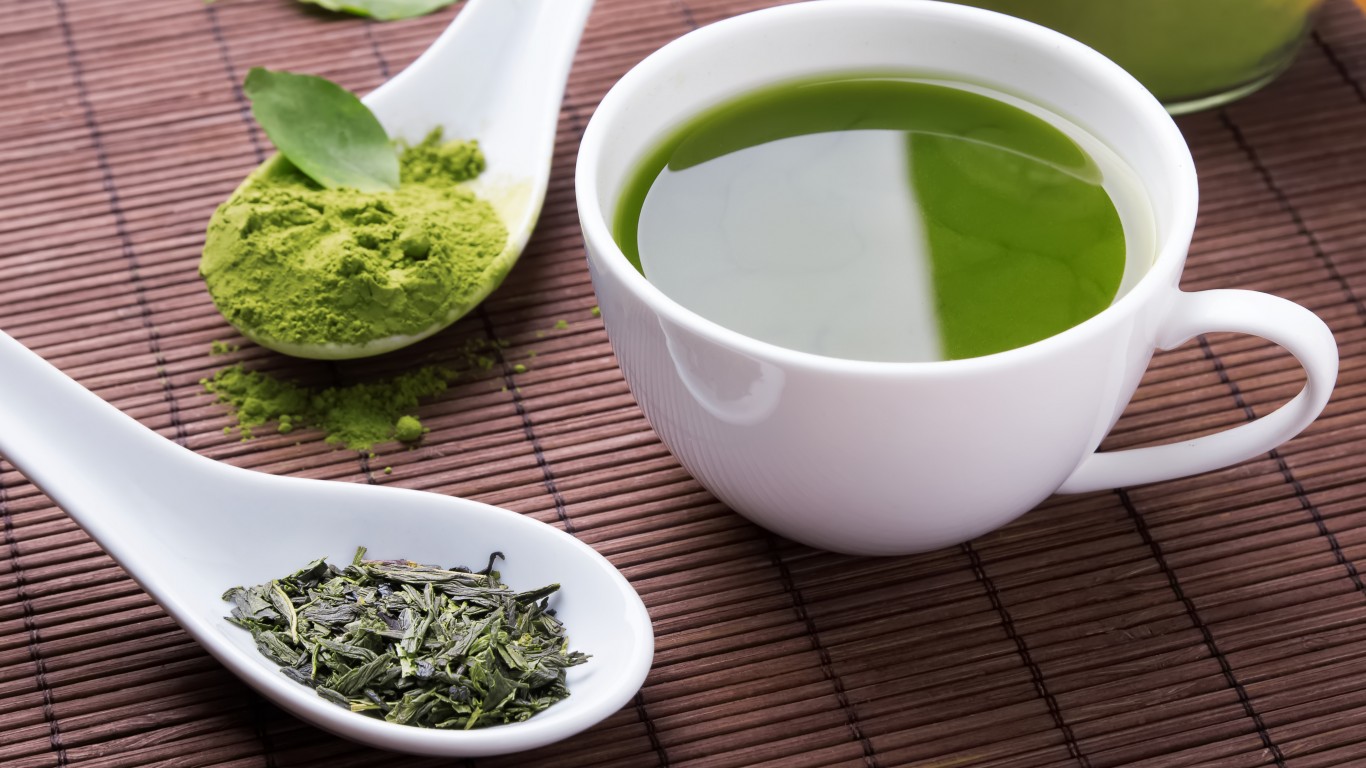
Green tea
Green tea is a good source of polyphenols, which help the production of healthy microbes in the colon. Consumption of green tea has been shown to increase the Firmicutes-to-Bacteroidetes ratio and levels of short-chained fatty acids, which are key to good gut health. Green tea also helps reduce Fusobacterium, a bacteria that may cause numerous infections and colorectal cancer.
[in-text-ad-2]

Kimchi
Pickled vegetables that have been fermented naturally — not using vinegar — are a rich source of probiotics. Some of the known benefits of kimchi, aside from helping with constipation and colorectal health promotion, may include anti-cancer and obesity, cholesterol reduction, and boosting the immune system.

Sweet potato
Sweet potatoes are rich in fiber, which research has shown to protect against colon cancer. Dietary fiber is not digested in the small intestine. The fiber makes it to the colon, where it promotes healthy composition of gut microbiota. Antioxidants in purple sweet potatoes stimulate the growth of healthy gut bacteria, including Bifidobacterium and Lactobacillus, two probiotic strains that also play a role in preventing and treating certain infections.
[in-text-ad]
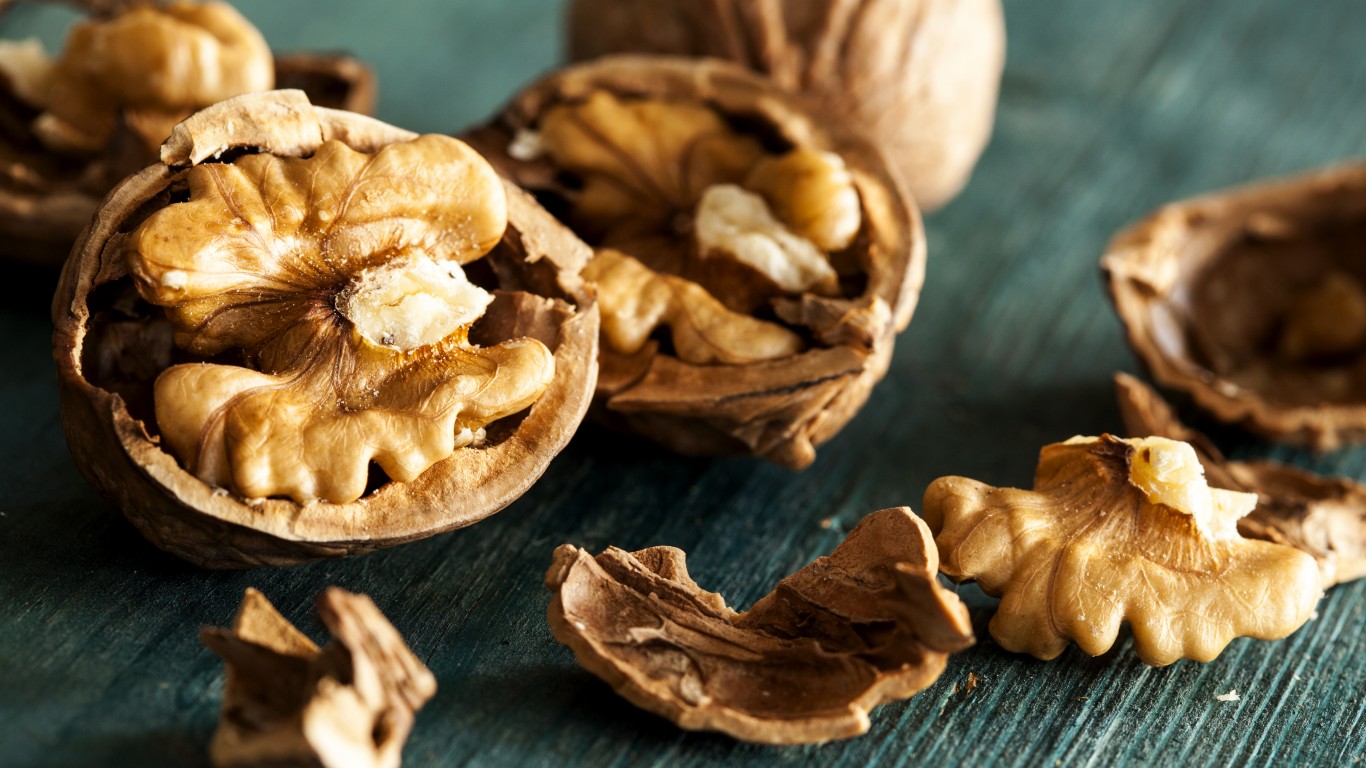
Walnuts
A 2018 study from the University of Illinois shows that walnuts play a key role in keeping the gut in a healthy balance between good and bad bacteria. They are rich in fiber, which the microbiota needs in order to digest food and absorb nutrients. Consuming walnuts increases microbes that produce butyrate, a fatty acid important for colonic health. The nuts also lead to higher levels of Faecalibacterium in the body, which reduces inflammation.
Thank you for reading! Have some feedback for us?
Contact the 24/7 Wall St. editorial team.
 24/7 Wall St.
24/7 Wall St.


